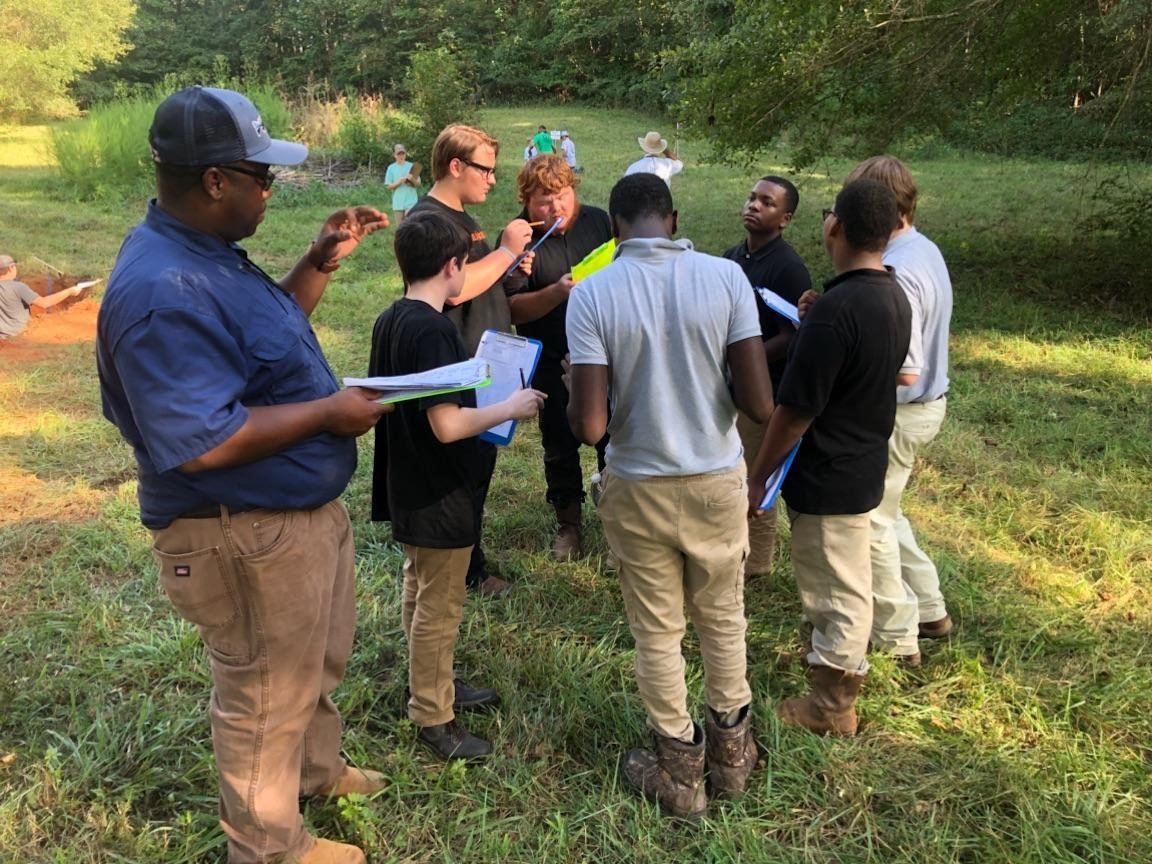For Joseph (Joe) Nesbit, being an agricultural educator is not a job, but a calling he thoroughly relishes.
Nesbit graduated from Fort Valley State University in 2014 with a degree in agricultural education. He serves as an agriculture educator at his former high school.
“What I enjoy the most about my job is that it doesn’t feel like work. I have the best job in the world. It allows me to teach the youth about one of the most, if not the most, important factors in the sustainability of life,” Nesbit said.
For the past four years, the 29-year-old has taught at Greene County High School in his hometown of Greensboro, Georgia. He is also the Future Farmers of America (FFA) advisor for the high school chapter.
“I feel very good about coming home to teach and having the opportunity to give back to my community,” Nesbit said. The Greene County School System appreciated his efforts by naming him Teacher of the Year for the district and Greene County High School for the 2019-2020 term.
It is not surprising that Nesbit’s chosen profession involves agriculture. He grew up on 90 acres of family land in Greene County. His mother (Louise) and father (Mcarthur), both children of farmers, were raised on farms. “Naturally, farming and agriculture are in my blood,” Nesbit said.
When Nesbit was in third grade, an uncle, Fred Wright, tilled him a garden. This piqued Nesbit’s interest in agriculture and he began growing tomatoes and peppers. “I’ve been gardening ever since then,” Nesbit said. He later expanded his farming experience to include chickens and beef cattle.
In addition to his upbringing on a farm, Nesbit credits his former high school FFA adviser, the late Dr. Marty Collins, for inspiring him to major in agriculture. “I chose agricultural education because it prepares and educates you in all the capacities of agriculture. Majoring in agriculture also gives you the flexibility to pursue different career fields such as education and job opportunities in the federal and private sectors,” he said.
When deciding where to attend college, the Greensboro, Georgia native said FVSU was a no brainer due to his father, two uncles and several cousins attending the institution.
As a student, Nesbit relied on the advice of former FVSU agriculture professor Dr. Glenwood Hill and Jared Fluellen, FVSU farm manager. “I still contact these mentors on a regular basis throughout the week. The information and life lessons that I learned from them during my time at FVSU are priceless,” the agricultural educator said.
Taking full-time classes and working on the university farm did not deter Nesbit from participating in extracurricular activities. These include Collegiate FFA, the Agri-Demic Forum, and Minorities in Agriculture, Natural Resources and Related Sciences (MANRRS).
Prior to his senior year, Nesbit interned at the University of Arkansas’ George Washington Carver Research Program. At Arkansas, he worked with Dr. Andrew Sharpley in the areas of crop, soil and environmental science. “During my time there, I had the opportunity to do a research project on poultry litter and how the runoff from poultry litter affects water quality,” Nesbit said.
Overall, Nesbit described his FVSU experience as enlightening. “One of the most important and enjoyable experiences was being part of a family atmosphere. It felt like home. Attending FVSU taught me a lot about life as an African-American as well as understanding and gaining a deeper appreciation for my culture,” Nesbit said.
The 2014 FVSU agricultural education alumnus said the university successfully groomed him for a career in agricultural education after graduation. “I was also blessed to have a family of fellow FVSU agriculture educator alumni help teach me things necessary to be successful in my field,” Nesbit said.
His advice to FVSU students seeking success is simple. Nesbit said they should visit their professors’ office, even when class is not scheduled, and converse with them. “I would also advise them to get a work-study job on the farm to gain real-world experience in agriculture and its practices,” Nesbit encouraged.
For professional success, Nesbit says students should gain as much knowledge as possible, build relationships, and develop contacts in their respective field.
As an agricultural educator, Nesbit’s goal is to help students apply lessons learned to life so they can be the best leaders and successful individuals in their pursuits. “I also want them to understand the importance of agriculture and the career opportunities available for minorities and all interested individuals,” Nesbit added.
In May 2020, the FVSU graduate earned a Master of Science in agricultural education from North Carolina Agricultural and Technical State University in Greensboro, North Carolina.

